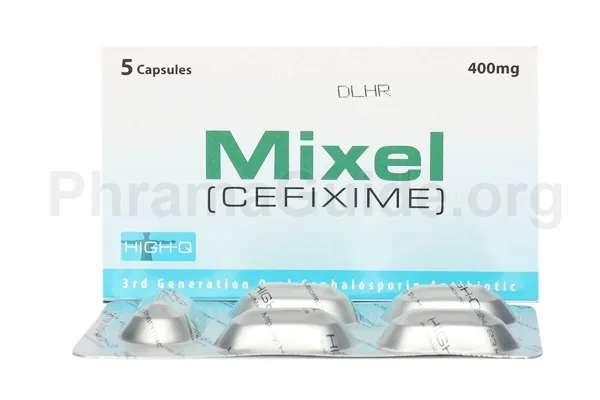Mixel is an antibiotic used to treat various bacterial infections. Like any medication, Mixel can have both common and less common side effects, as well as potential drug interactions. Here are some common and less common side effects of Mixel.
Common Side Effects
- Gastrointestinal upset: This can include diarrhea, nausea, vomiting, and abdominal pain.
- Allergic reactions: Some individuals might experience allergic reactions while taking Mixel, which could manifest as rashes, itching, swelling of the face or throat, or difficulty breathing.
- Headache: Mild to moderate headaches can occur while taking Mixel.
- Vaginal itching or discharge: Women may experience vaginal yeast infections or other changes in vaginal discharge.
- Dizziness or drowsiness: Some people might feel dizzy or drowsy while on Mixel.
Less Common Sode Effects
- Severe allergic reactions: While rare, severe allergic reactions can occur while taking Mixel and may include symptoms like severe skin rashes (Stevens-Johnson syndrome or toxic epidermal necrolysis), swelling of the face or throat, and difficulty breathing.
- Pseudomembranous colitis: This is an inflammation of the colon caused by an overgrowth of certain bacteria and may result in severe diarrhea, abdominal pain, and fever.
- Liver problems: Elevated liver enzymes or more severe liver issues can rarely occur while taking Mixel.
- Blood disorders: In very rare cases, Mixel might affect blood cells, leading to conditions such as leukopenia (low white blood cell count) or thrombocytopenia (low platelet count).
- Central nervous system effects: Some individuals might experience symptoms with concurrent use of Mixel like confusion, hallucinations, or seizures, though these are very uncommon.

What is Mixel?
Mixel is one of the leading brands of Cefixime, manufactured and marketed by High-Q International.
Mixel : Available Formulations and Strengths
Presently, Mixel is available in Capsule and Suspension Form and with the following strengths.
Mixel Capsules : 200mg and 400mg strengths.
Mixel Suspension : 100mg/5ml and 200mg/5ml strengths.
What Are The Possible Drug Interactions of Mixel?
- Antacids: Taking antacids containing aluminum, magnesium, or calcium can reduce the absorption of Mixel. It’s advisable to separate the doses of Mixel and antacids by at least two hours.
- Probenecid: Probenecid, a medication used to treat gout, can decrease the elimination of Mixel from the body, potentially increasing its levels and effects.
- Blood-thinning medications (e.g., warfarin): Mixel might increase the effects of blood thinners, leading to an increased risk of bleeding. Close monitoring of blood clotting parameters may be necessary when these drugs are used together.
- Other antibiotics: Combining Mixel with certain antibiotics might enhance the overall antibacterial effects or lead to an increased risk of adverse effects. Caution is advised when using multiple antibiotics simultaneously.
- Methotrexate: Mixel may increase the levels of methotrexate in the body, potentially leading to methotrexate toxicity.

Leave A Comment